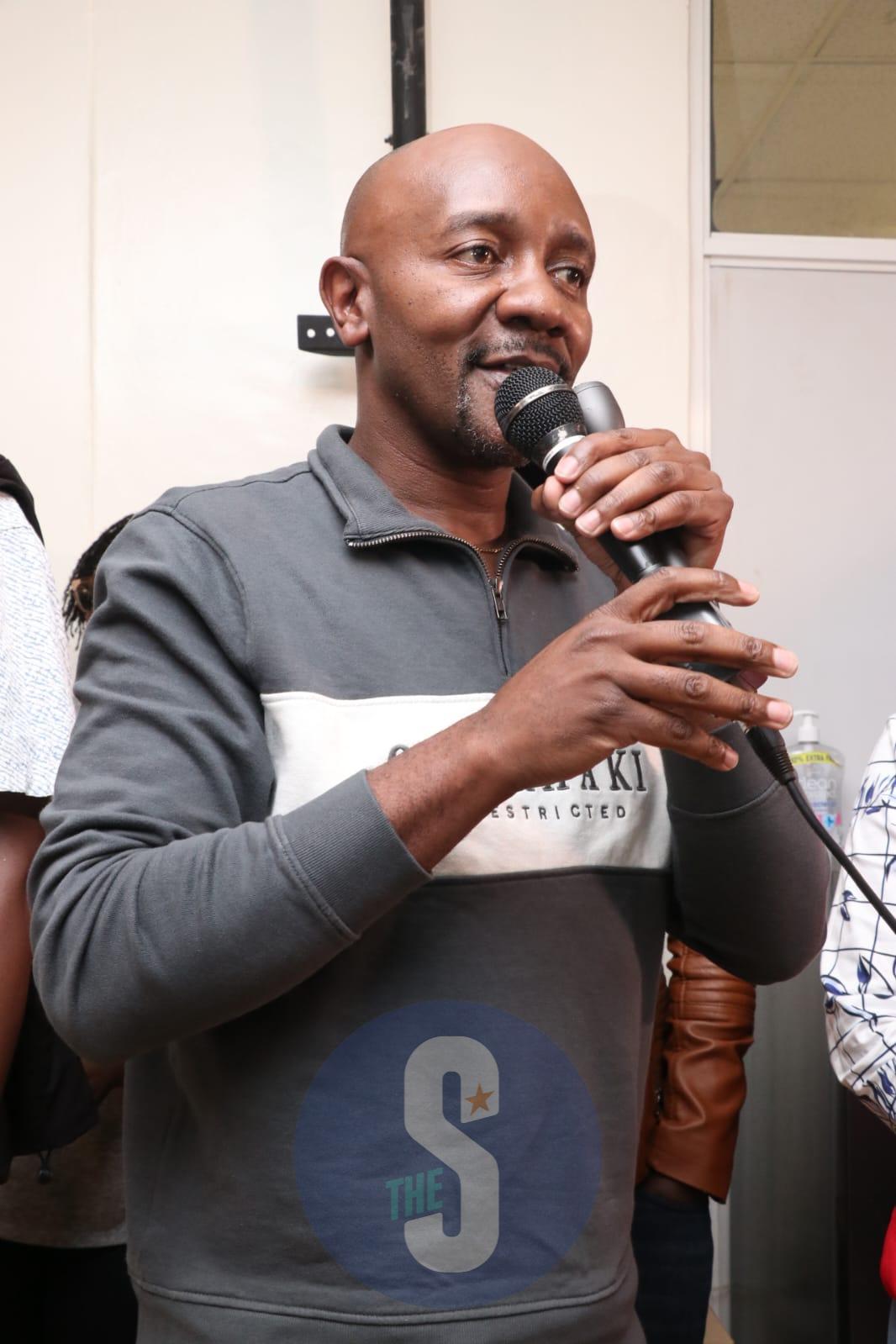

Martin Khafafa’s corner office at Radio Africa Group is a hive of activity. He shuffles from one room to another, alternating between urgent phone calls and back-to-back online meetings. His schedule is relentless, but he navigates it with the calm urgency of a man who has lived this pace for years. Yes, Khafafa has always been at the top and was part of the stewardship through storms and sunshine.
As we finally settle into the interview, one thing becomes immediately clear: Khafafa is thoughtful, measured, yet deeply engaged. He switches seamlessly between media strategy, public policy, and scripture, quoting the Bible with ease. It’s a style that is both philosophical and pragmatic
As the Star newspaper marks its 18th anniversary this July, Khafafa, CEO of Radio Africa Group, which owns the Star, reflects on a journey defined by disruption, reinvention and a steadfast commitment to credible journalism. In a candid conversation, Khafafa paints a portrait of a media house that has evolved with the times without losing its soul, remaining, in his words, “bold, audacious, and credible”.
“When we began this journey, the media landscape was very, very different,” he recalls. “It was pretty much stable, minimal disruptions. But today, the tables have turned.”
Khafafa has steered the Star through a volatile period marked by digital transformation, political turbulence and shifting audience habits. Yet, amid the chaos, the Star has held firm to its founding values of independent, public-interest journalism, even when that stance has ruffled feathers in the halls of power. “Reflecting on my 18 years of leadership, I am filled with immense pride, humility and gratitude,” the CEO says.
The Star newspaper has carved a niche as Kenya’s go-to source for sharp, explosive, and behind-the-scenes journalism—the kind that peels back the curtain on power, exposes untold truths and sparks national conversation. “Yes, the Star has put me in trouble with the powers,” he admits with a wry smile.
“But we’ve taken bold and often unpopular decisions to preserve our independence. We’ve avoided state control. And through it all, we’ve kept our commitment to giving a voice to the unheard.” That commitment has not come easily. The rise of digital media has been both a threat and an opportunity. While legacy revenue models faltered, the Star leaned into innovation. Today, Khafafa says, the outlet is not merely a newspaper, it is an “opinion shaper and communications solutions provider.”
Three words. Bold. Audacious. Credible
Asked to describe the Star in just three words, Khafafa does not hesitate: Bold. Audacious. Credible. These are not just marketing lines, they encapsulate a newsroom culture that continues to take risks, ask tough questions and stand firm in its editorial independence. “We’ve told stories that have changed lives and shaped conversations,” he says. “That’s something I’ll always be proud of.”
AI, Gen Z and the future of news
Unlike those who view Artificial Intelligence as a threat to journalism, Khafafa sees it as a transformative tool.
“AI didn’t come to take our jobs; it came to expand our horizons,” he says. “It makes us more agile, faster and more global in outlook.” That global perspective is also reflected in the Star’s leadership. The company’s board includes executives from South Africa, Ghana, Uganda, the UK and Kenya, a structure Khafafa credits for empowering him with a balanced and independent mandate.
“The Star’s board has always been independent and deeply supportive,” he says—a loyalty he credits for his remarkable 25-year run at Radio Africa Group, never once tempted to look elsewhere. Internally, the organisation is as multigenerational as its readership and that diversity is by design. “It’s even said in the Bible: old men have dreams, young men have visions,” he muses.
“Gen Z is digital, they know the potential of the future. Our role as the older generation is to architect their choices while letting go of control. That’s how we bridge generations.” At intergenerational mix, he adds, is what gives the Star its unique voice: energetic yet wise, progressive yet grounded.
A divided but vital media space
Reflecting on Kenya’s wider media environment, Khafafa acknowledges both progress and polarisation. “The space is more open and democratised. Media has stayed relevant to the country’s development,” he says.
“But yes, let’s face it – the media has become divided. Some are seen as pro-government, others pro-opposition. Ironically, those labels flip with every regime change. That’s media for you.” Despite these challenges, he insists that self-regulation and independence are non-negotiable if the media is to maintain its integrity.
The new journalist: A 360-degree professional
For Khafafa, the age of the “pen pusher” is over. The era of single-skill reporting is long gone. Today’s journalists, he argues, must be researchers, storytellers and technologists all at once. “We don’t just report for reporting’s sake. We report to shape opinion, foster growth, and change lives,” he says.
“To do that, you can’t remain straight-jacketed— you’ve got to expand beyond traditional journalism.
Looking ahead
While Khafafa looks back on the Star’s 18-year journey with pride, his gaze is firmly set on steering it into a dynamic future. The mission remains constant: be fearless, be truthful and continue making an impact.
“I’m proud of the teams we’ve built, the talents we’ve nurtured, and the stories that have changed lives,” he says. “That’s the legacy I want to protect.” As the Star enters adulthood, Khafafa says, the paper’s mission is far from complete.













